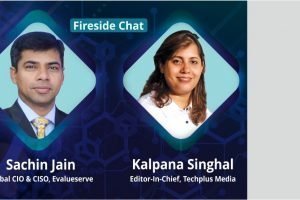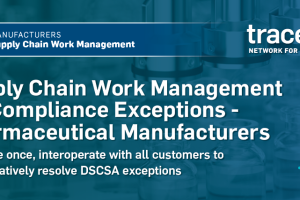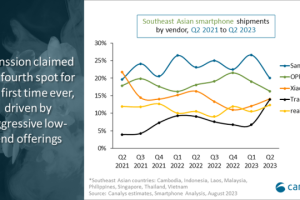Says, Dr. Sanjiv Agarwal, MD & Founder, Diabetacare, in an interaction with Ekta Srivastava, Health Technology.in.
Established with an underlying desire to bridge the gaps in current diabetes management strategies, Diabetacare is a 24×7 service dedicated to put people with diabetes in regular direct touch with physicians and specialists using mobile technology, enabling an organized diabetes management platform focused on prevention as well as treatment.
What is the concept underlying Diabetacare? Any model that you emulate?
I started Diabetacare in 2013 with the desire to bring about a paradigm shift in diabetes management system in India by moving it from a deeply fragmented model to a 360-degree comprehensive care one. Having worked in the healthcare industry for over two decades — both in India and with National Health Service in the United Kingdom – I could see the gaps clearly and realized that intelligent use of technology can make a huge difference towards bridging those gaps in chronic disease management, especially diabetes.
About 70 million people live in diabetes in India and The World Health Organization estimates that an additional 36 million remain ignorant of their condition. This means that nearly 1 in 10 Indians suffers from this condition but is either unaware of it or is slipping through the treatment cracks with inadequate reporting and monitoring.
As a doctor and an entrepreneur, this unique situation presented both the responsibility and an opportunity to contribute. Diabetacare is a marriage of the advance treatment strategy and technological innovation for the management of diabetes, with the intent of delaying complications and preventing premature mortality.
Our model and 24×7 connected patient offering is unique in India.
We provide end-to-end care: from screening, monitoring and intervention to patient data analysis and personalized counseling. Our technology allows us to automate data collection and presentation, so that our people can spend more time in providing comprehensive, customized and complete clinical support to our patients.
In India, we are a first-to-market, patient- and physician-focused model. Our unique solution – people, processes and technology – makes Diabetacare a trusted partner of hospitals/clinicians and a one-stop shop for diabetes-related diagnostics, treatment, and education for patients.
What are the technological advancements you have introduced lately in the vertical? Your core strengths?
With a focus on 24×7 monitoring and 360-degree care, Diabetacare employs technology that couples a diabetes electronic medical record system with clinical decision-making algorithms. Our DxNET™ has been devised per the UK National Institute for Health and Care Excellence (NICE) guidelines.
A vital part of our solution offering are the smart M2M-connected glucometers and blood pressure-machines. We educate and enable patients to use these machines; readings are automatically recorded on the device, communicated to the patient’s doctor’s mobile device and relayed to us at the experience center. This process enables all relevant parties to monitor patient’s progress and offer interventions, when and where necessary.
What are the challenges faced by Diabetacare?
There is a definite problem with awareness of diabetes among people. Once they become aware, the second problem arises with the acceptance of the disease, at least for the first few years. Unless the patient accepts the condition, it becomes a challenge to manage/monitor it.
In your opinion, what role do emerging technologies like big data play in the current technology adoption for healthcare vertical? Especially when we talk about patients suffering from diabetes?
Today big data analytics is being used to revolutionise healthcare, improve delivery, systematize research and achieve better diagnosis. Collecting data and figures from patients and communities, and using analytical tools to make sense of it, find trends in diseases, predict epidemics, highlight racial pre-disposition to diseases and suggest solutions for the same are some areas where big data is changing the face of healthcare.People now have the chance to consult for a medical opinion through mobile applications specifically designed to answer their queries as well as connect them to their respective physicians for reminders for tests and check-up. In case of a serious ailment, the reduced time in consulting and understanding of symptoms, due to a virtual presence, is crucial in making a real difference in medical success. A brilliant example of the widespread big data application in the Indian market is the diabetes management industry.
How a patient should join Diabetacare? How does it help them? What are its benefits?
People can avail Diabetacare services by visiting either our experience center in Bangalore or any of our hospital partners. They can also book an appointment through our website www.diabetcare.com or call us at 1800 208 2222.
Once a customer becomes a registered Diabetacare patient, he/she will get access to Diabetacare ecosystem which includes – Smart devices, Apps, Electronic medical records (EMR), 24×7 clinico-technology solution and personalized health coaching services. At Diabetacare experience centers, the patient also gets a personalized care plan, which involves complete history collection, eye check-up, foot screening, diet consultation and doctor consultation. Post doctor consultation, the DMC team (Diabetacare Monitoring Center) coaches the patient (& kin), with ways to manage diabetes.
The network of monitoring devices, apps and health coaching through DMC help patients easily communicate their daily condition with their doctors and control their diabetes better.
Benefits of Diabetacare Technology Ecosystem
At Diabetacare, the three steps to effective diabetes care are screening, monitoring and intervention. Understanding the importance of each step is essential to a patient’s successful treatment.
Screening
Proper screening helps our doctors to evaluate the advancement of diabetes and ascertain whether a patient is at risk for complications. Using Diabetacart℠, the doctors test the patient for hyperglycemia (too much glucose in the bloodstream), dyslipidemia (too much cholesterol), and hypertension (high blood pressure). Furthermore, the doctors also conduct comprehensive investigations on patient’s likely-to-be-affected organs: eyes, heart, kidneys, and feet.
24/7 Remote Monitoring
Key steps in Diabetacare’s diabetes care process are easy-to-use monitoring and regular follow-ups. Diabetacare’s technology ecosystem includes a network of monitoring devices and apps to help our patients easily communicate their daily condition with their doctors.
dCare Smart™: Our glucometer with an in-built SIM card instantly sends the patients’ blood sugar reading to the doctor and captures the same in their online personal health record.
DxNET™: Our electronic medical record system reminds both the patient and the doctor about upcoming treatment steps.
TheInTouch™ Physican App helps the doctor manage and monitor patients that require extra care and attention. The app is compatible with both iOS and Android devices, including tablets, “phablets,” and smartphones.
DIABETA™ app: The Diabeta app acts as companion tool for the patients for reminders and alerts (for checking BGL, BP, taking medication, doing exercise, tracking calorie intake). Patients and authorized family members can easily visualize the trends, reports, care plan in this easy to use interface. This is available for download on both iOS& Android platforms.
Snap a Meal app: ‘Snap a Meal’ captures information on calorie intake and helps control weight and blood sugar level. The app allows the physicians to stay up-to-date on their patient’s health and provide timely care.
Intervention
Also known as preventative medicine, the third step in our diabetes care plan is to empower the patient with knowledge. Once a patient knows more about diabetes, he/she will understand the treatment options better. Together, our doctors and patients can make a positive choice that improves the quality of life.
The patient will be in regular touch with Diabetacare’s Diabetes Monitoring Centre (DMC). Diabetes Management Centre (DMC) is our 24×7 support centre. Diabetes specialist nurses (DSNs), trained by clinicians and accredited by UK universities, review the patient’sDxNET™ records on a regular basis to remind the doctors and patients what to do next.
The patient will also regularly consult with a Diabetacare partner physician and a personalized diabetes educator / nutritionist, who are committed to treating the total condition. While our physicians will meet by appointment, the patient can connect with their diabetes educator / nutritionist at their convenience.
How can a PPP be a better alternative to fully owned governmental healthcare schemes? Do you see the PPP initiatives as more efficient at delivery of services?
All the three models – Government owned, Private owned & PPP have their own pros & cons. Government institutions usually have in-depth understanding of the market and also have access to a larger consumer base. The private companies on the other hand, are more aggressive in implementation and have access to the latest technology/solutions. Both the models when combined, can potentially result in better execution and outcome. In the past, PPP models have proved to be very successful in implementing innovative technology driven solution among masses. In principle, PPP is a win-win model for all stakeholders including citizens.
Any Case studies
Case-1
Patient 1 (Mr. Ravi- Name changed as we cannot disclose the name of our patients)
Mr. Ravi has been diabetic for the last 20 years. He was unaware of the ways to manage his blood sugar levels. He came across Diabetacare through a free screening camp held in his locality. It was in the year 2015, that he visited one of the Diabetacare clinics. At the time of registration his HbA1C (average sugar level of last 3 months) was 11 and our clinical team recommended him to take the annual plan which included screening (1 year),dCare Smart glucometer, 24×7 monitoringof the blood glucose levels, doctor consultation, nutrition consultation and health coaching. After regular follow-ups and 24×7 monitoring his blood sugar level started stabilizing. Customized monthly diet planshelped him to follow a healthy lifestyle. With regular monitoring, doctor intervention he has been able to achieve an HbA1C level of 6.16 (which is in the normal range).
Patient 2- (Mr. Syed Mohammad- Name changed as we cannot disclose the name of our patients)
Mr. Syed Mohammad visited Diabetacare center for a doctor consultation in 2016. But after going through our comprehensive screening pathway (suggested by doctor), he was happy and satisfied with our services. The complete patient care pathway that involved screening, lab tests, eye check-up, foot examination, doctor consultation and nutrition consultation was completed in approximately 2 hours. He found the pathway educational and was happy to learn about different ways of managing diabetes. Since then, he has been able to better manage his diabetes with the help of customized diet plans, diabetes education, health coaching.




























